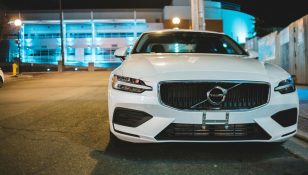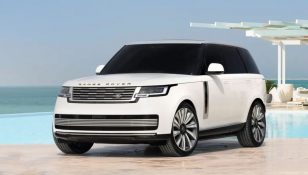Leasing VW – A Comprehensive Look at Leasing Volkswagen Cars

Introduction:
Leasing Volkswagen (VW) cars has become a popular choice for many individuals interested in acquiring a new vehicle. In this article, we will delve into the various aspects of leasing VW and discuss what prospective lessees need to know. By understanding the historical development of leasing VW and its current landscape, readers will gain valuable insights and make informed decisions when considering this option.
I. Leasing VW: An Overview

Leasing a VW allows individuals to enjoy the benefits of driving a new car without the commitment of ownership. It involves a contractual agreement between the lessee and a leasing company, wherein the lessee pays a monthly fee to use the vehicle for a predetermined period. Key points to consider regarding leasing VW include:
– Flexibility: Leasing offers flexibility in terms of contract duration, mileage, and vehicle choice, allowing lessees to adapt their agreement to suit their needs.
– Maintenance: Leasing VW often includes maintenance packages, covering routine services and repairs, providing peace of mind to lessees.
– Depreciation: As vehicles depreciate over time, leasing VW allows individuals to avoid the potential financial burden associated with owning a depreciating asset.
– Upgrade Opportunities: Leasing presents an opportunity to drive a new VW model every few years, keeping up with the latest technologies and features.
II. Historical Development of Leasing VW
In the early days of automobile leasing, it primarily catered to businesses and fleet operators. However, as the concept gained traction, leasing VW became more accessible to individual consumers. Key milestones in the historical development of leasing VW include:
– 1950s-1970s: The emergence of leasing as a viable alternative to vehicle ownership, primarily for businesses.
– 1980s: Leasing gained popularity among individual consumers as manufacturers began offering attractive lease terms and warranties.
– 1990s: Automakers, including Volkswagen, recognized the potential of leasing and started offering manufacturer-backed leasing programs.
– 2000s: Leasing VW became more common, and manufacturers introduced innovative lease options to encourage customer loyalty.
III. The Current Landscape of Leasing VW
Today, leasing VW remains a popular choice for car enthusiasts and individuals seeking alternative financing options. Below are critical aspects of the current leasing landscape:
– Competitive Rates: Due to the increase in leasing offerings, competitive lease rates are available from various leasing companies and Volkswagen dealerships.
– Customizable Contracts: Lessees can tailor their agreements, considering factors such as mileage limits, contract duration, and additional features.
– Enhanced Technology Options: VW continuously introduces cutting-edge features in their models, making leasing an attractive option to stay updated.
– Environmental Benefits: Leasing VW electric or hybrid models contributes to reduced carbon emissions and aligns with a more eco-friendly lifestyle.
Conclusion:
Leasing VW provides an enticing opportunity for individuals to enjoy the experience of driving a new car without the long-term commitment of ownership. By understanding the various aspects of leasing VW, including its historical development and current landscape, potential lessees can make an informed decision. Whether it’s flexibility, maintenance coverage, or the chance to upgrade to newer models, leasing VW offers a range of benefits that cater to the needs of car owners and enthusiasts alike.

















